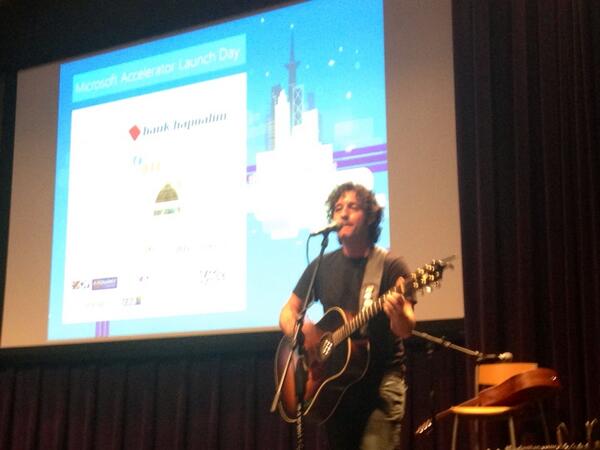Azure in the Valley: Microsoft Accelerator in Tel Aviv Visits Microsoft Silicon Valley
Israeli Windows Azure Demo Day comes has come and gone twice, and this time there is evidence of strong growth in the class members. Last year's class received on average $900,000 in venture funding per startup. This year, the group doing a tour of investment circles and having meetings with companies to sell their solutions is coming up with an equally impressive group of statistics. Ten out of 13 startups in this class have secured some form of funding.
The Accelerator, based in Tel Aviv, and currently opening up applications for its third class, works in partnerships with two universities, one in Israel and the other, Georgia Tech. The startup culture in Israel is pretty intense. Close relationships and an innovation-focused society has driven many to pay attention to the new Accelerator.
As Deborah Gage points out in her write up this morning:
Israel lately has been a startup machine, with Israeli army veterans using the technical skills they’ve learned in the military to launch companies alongside their friends, and admission to the accelerator is getting more competitive–the company reports 300 applicants for 13 places this time, compared to 100 applicants for 11 places last year.
Here is a brief overview of some of the companies that presented.
Started with a little music.
WSC -- This is kind of MySpace for sports but the bands in this case are sports teams. The web app helps people manage the sports they love and is an answer to a fragmenting media landscape facing big media brands and the athletic teams that are trying to manage their broadcasting rights. Fans can look for any content for any of their favorite players and curate in a video-centric player. They can also vote and share with other fans. Fans can add their favorite moments into a fan board and share it via a kind of shop window. It’s called the Play Maker. According to Gage's reporting, WSC has raised $1 million in funding.
Then there was Askem, which “enables you to question everything,” according to founder Itai Herman, who was decked out on stage during the afternoon pitch. The app works like a super rich media bulletin board. Take Instagram and then attach the ability to put together instant polls and then tag the photo with potential answers. The team plans on making money by partnering with brands, helping them understand exactly what consumer think, from the looks of the pitch. The rationale: Brands are so big that the crowds they attract are huge, so who is being heard i the dense thicket of smartphone voices?
“My lost voice becomes a significant vote,” said Herman. The method of creating a question out of a moment turns any moment into opinion measuring that is statistically significant. "We suggest leaving marketing tools to marketing people. Most of us want to create freely and creatively. We don’t want yes or no, hot or not questions. These things need to change. Questions are part of who we are.”
From questions, we dove into other questions and smartphones, this time with the huge opportunity for brands at athletic events. Screemo is something like a smartphone interaction with digital signage for fans at games. The app creates real life interactive experience between smart phones and digital screens during athletic events to drive engagement with the brand but also increase sales and revenue for athletic events through brands sponsorship. When they recently did a beta with Tel Aviv Maccabees, the popular Israeli basketball team, the brand achieved 25% engagement during the game and was able to double the revenue from the digital ad space. Another 84% of those engaged on the phone turned to the team's Facebook page, where they continued to interact.
